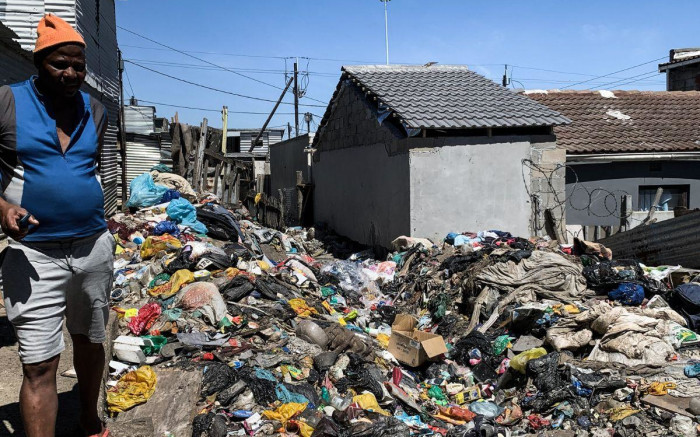
Dunoon informal settlement is so crowded that residents have begun digging into Potsdam Road bridge, causing parts of the structure’s barrier to fall apart. This coupled with refuse last collected in June poses health and safety risks – but many residents blame their ward councillor.
A Dunoon informal settlement resident stands behind an ever-growing pile of rubbish. Trash was last collected at the end of June 2023. Picture: Kayleen Morgan/Eyewitness News
CAPE TOWN – The cost of living on ‘prized land’ in Dunoon means living in a densely populated area alongside a mountain heap of waste and raw sewage, with no electricity in certain parts.
The informal settlement is so crowded that residents live on the side of the Potsdam Road bridge, which links the industrial hub, located metres away, to Dunoon.
Digging to create space to build more shelters has now caused parts of the bridge’s barrier to fall apart.
According to the City of Cape Town (CoCT), the bridge is structurally sound.
Pedestrians using the bridge watch their steps or walk on parts of the road intended for vehicles to get from one end to the other to avoid a possible fall.
Residents in Dunoon have dug into the embankment on Potsdam Road bridge to create space for their shelters in an effort to be relocated. Picture: Kayleen Morgan/Eyewitness News

Picture: Kayleen Morgan/Eyewitness News
According to CoCT Human Settlements MMC Carl Pophaim, the proximity to businesses makes Dunoon valued property.
“It’s a particularly priceless space for informality because it’s the closest informal settlement to the CBD, and it’s right next to Industria,” he said.
And while pressure is mounting on the city to provide solutions for its housing crisis, Pophaim said solving the issue was not as simple as relocating residents.
“If tomorrow I found three hectares of land, and I remove all those shacks, I promise you by the evening there would be new shacks, so that is the demand that we’re dealing with in human settlements. “
To accommodate more people, residents are also building upwards in the form of double-storey shacks.
Ward councillor Meisie Makuwa said the rapid increase of people moving along the Potsdam Road bridge, under which a Transnet Freight Rail train line runs, is to get ahead in a bid to qualify for relocation to other living spaces.
Residents live right next to the decommissioned railway line, which they use to dump waste and relieve themselves.
“It’s not overpopulation; it’s wanting to jump the queue so that you will be in the front row of getting a house, while the old people living in that area are going to remain without services at all,” said Makuwa.
“People invaded in numbers when they heard there was an eviction order.”
_GroundUp _reported that Transnet and the CoCT had been in negotiations to relocate the residents for over ten years after Transnet approached the Western Cape High Court in 2013, seeking eviction orders against the shack dwellers.
But the group living there said they were not acting with bad intent, and were simply trying to improve their lives because they could not afford the rent in other areas.
“We ran from renting places. We are not taking the land by force. We’re not fighting anyone, and if someone can tell us we’re moving to a better place, we’ll move tomorrow,” one resident told Eyewitness News.
The grim living conditions also contribute to residents’ desperation for relocation.
The stench from used nappies, food scraps, and raw sewage is becoming increasingly difficult to ignore. Waste and rubble are not only overflowing from containers provided for refuse collection, but are now piling up between walkways, roadsides, and in the Dunoon Dam.
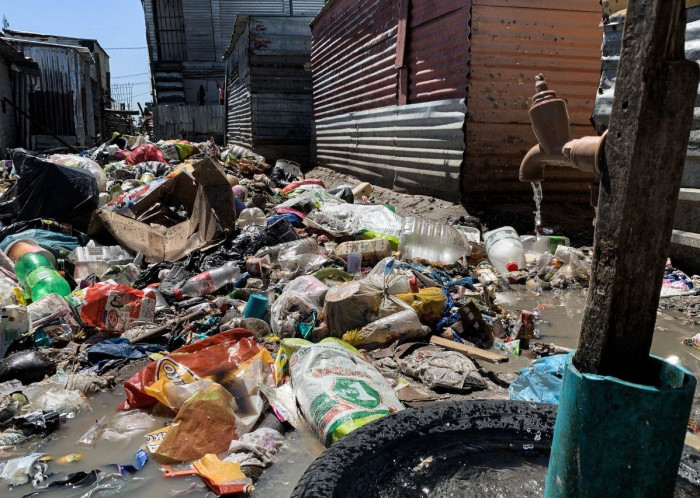
Refuse piles are growing around Dunoon’s informal settlements. Rubbish has not been collected in the area since the end of June 2023. Picture: Kayleen Morgan/Eyewitness News
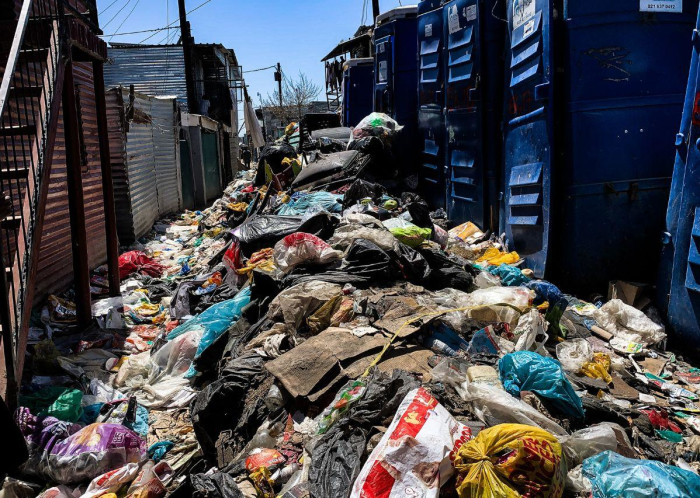
Picture: Kayleen Morgan/Eyewitness News
Refuse has not been collected for over four months in the area, after a waste management contract expired. The contract is yet to be renewed by the city.
“We’re actually living inside of a toilet. There’s dirt, there’s rats that bite our children at night, because everything is here,” said resident Namhla Magobodi.
Magobodi said the health impact of the growing dirt was of great concern.
“It’s in the water, and we can’t breathe. It’s making us sick. We don’t know what to do.”
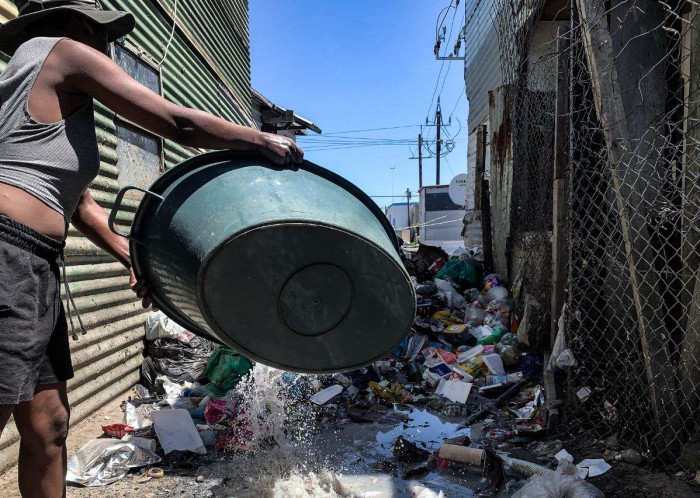
A resident dumps dirty water into a growing pile of festering rubbish in the Dunoon informal settlement. Picture: Kayleen Morgan/Eyewitness News
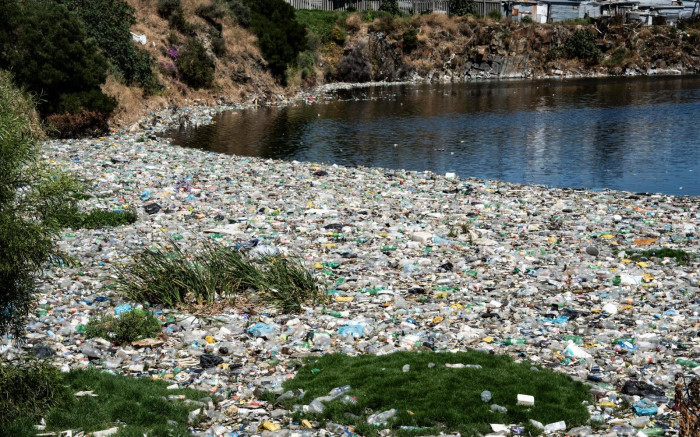
Piles of rubbish pollutes the Dunoon Dam. Picture: Kayleen Morgan/Eyewitness News
Community leader Vuyelwa Godjana said their conditions were thanks to the failure of ward councillor Meisie Makuwa, who many have accused of not doing an adequate job of ensuring service delivery.
“We go to our councillor and ask for help because we elect the councillor so that she can be our mouth[piece] to the City of Cape Town, but the councillor says she’s not working for disaster or solid waste,” said Godjana.
Others, including Magobodi, suggested that Makowa be removed because the list of non-deliverables was piling up.
“I feel failed, and it makes me angry because the day we elected her, we knew that the City of Cape Town has offices that we can’t go to ourselves, so we chose her to do that to improve our environment. We’ve been trying to communicate our issues with her, but we’re getting no response,” she said.
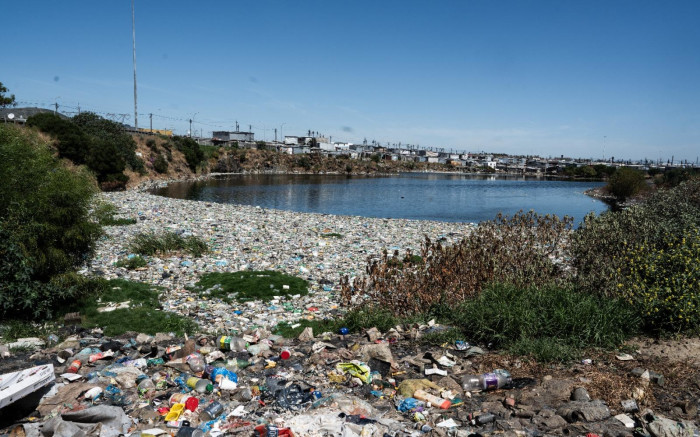
A polluted Dunoon Dam with the informal settlement in the background. Picture: Kayleen Morgan/Eyewitness News
Edit Image
Makowa said she understood the community’s frustrations, being a resident herself. Still, she maintained her hands were tied, because her job of overseeing service delivery was only possible if the CoCT delivered on the requests she made on behalf of the ward.
Eyewitness News reached out to the city’s Department of Urban Waste Management in October for comment. After two weeks, we followed up and were promised a response, but we have yet to receive one.






Recent Comments